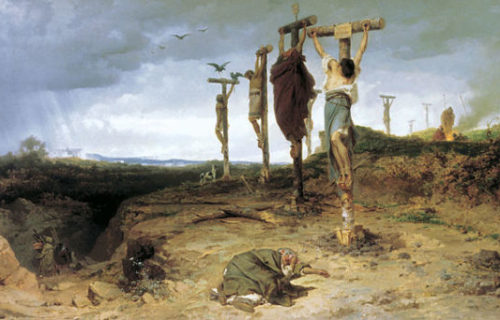Pseudo-Homilies 23 – The Pearl

Seventeenth Sunday in Ordinary Time – Year A As always, once again I will make an exception to the rule I have given myself, and I won’t focus on a single theme. At least I’d hope to be concise, but even that would be a (desired, unlikely) change. On predestination (reprise) Our first topic comes from the Second Reading, which in a way represents a continuation of our discourse on predestination addressed in the previous article. In fact St. Paul in the Letter to the Romans parallels these two planes, which seem impossible to reconcile: the eternity of the creation, whereby God “already” knew everything “immediately”, and our becoming. Are…







































